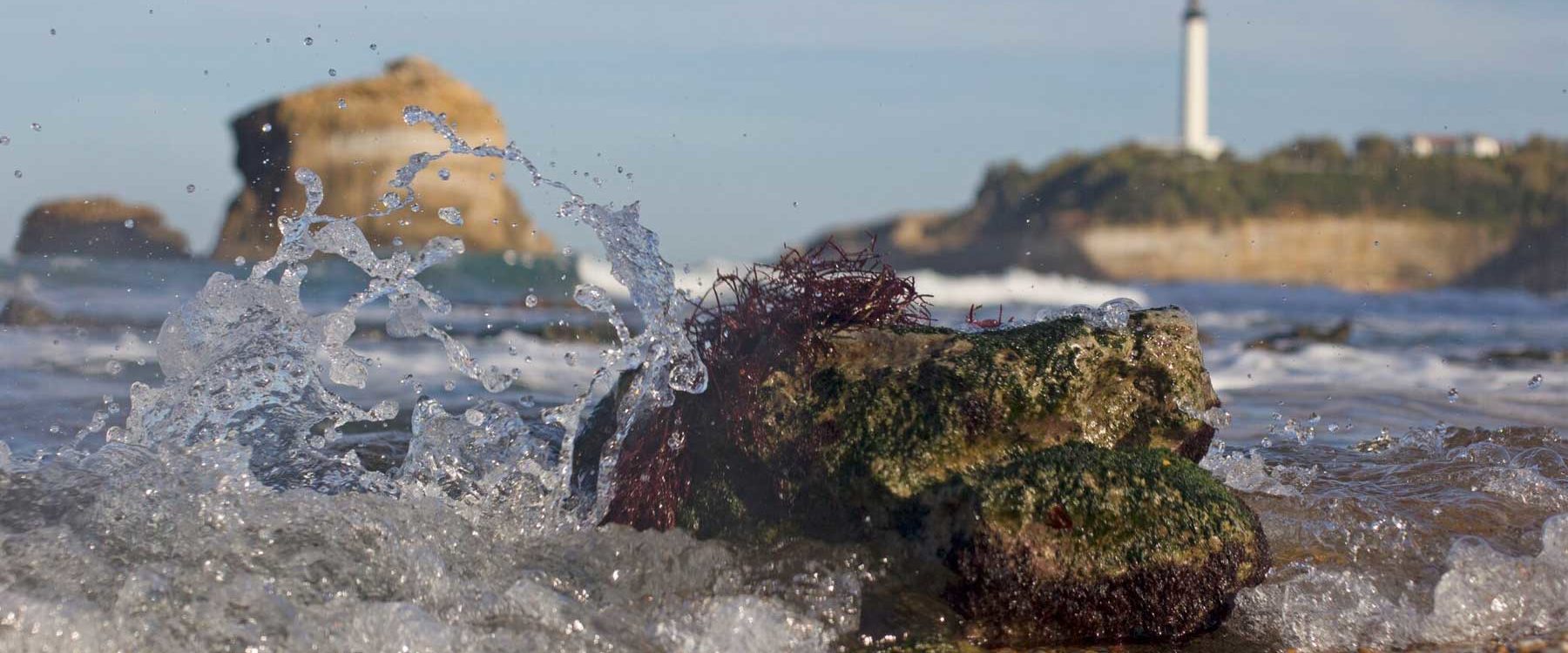With the first autumn swells, it is not only surfers that get excited. It is also the beginning of the harvesting season of the red seaweed Gelidium sesquipedale in the Basque Country. An entire industry is deployed, for volumes reaching past one thousand tons.
Prized for its jellifying potential (and more recently its antioxidant activity as seen in our labs), it is used in diverse industries such as food production, biotechnology and cosmetics.
During its natural growth cycle Gelidium sesquipedale grows on rocky reefs exposed to currents and waves generally under the tidal range to a depth of around 15 m. During the calm summer months, the seaweed grows steadily, reaching its greatest size in the beginning of autumn. The ocean begins to grow restless at that time, swells generated by distant storms. Under the influence of wave action, pieces of the seaweed break off and float away.
Harvesting can then commence. Out on the water, the seaweed bunches and accumulates in certain areas according to the currents. Fishing boats equipped with special nets gather them there, without disturbing those still attached. For some crews, the activity can represent up to half of their yearly turnover!
On the beaches where the seaweed washes up, tractors with specialized trailers scoop them up. The same machinery is used to clean the beaches in the summer.
In other countries divers or harvesters walking out on spring tides pick the seaweed directly, ripping off stems from the base. When this activity gets out of control, production decreases from year to year. This is notably the case in Morocco, where sustained and anarchically regulated harvest has resulted in the collapse of Gelidium populations. The same had previously happened in Portugal: in the 70’s, several thousand tons were picked yearly, today the number is barely 200 tons.
In the Basque Country, direct harvesting is not permitted: enabling long-term and sustainable usage. In this way this valuable and renewable resource will be continue to profit for future generations. Les Laboratoires de Biarritz own Alga-Gorria® is a good example of this.
